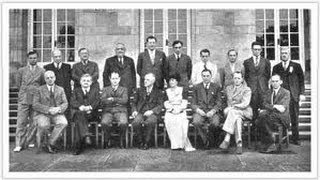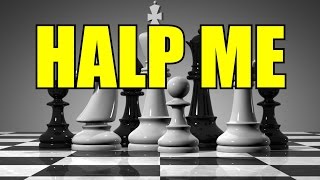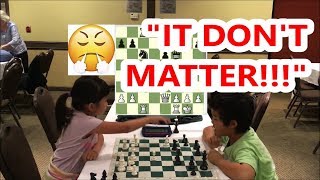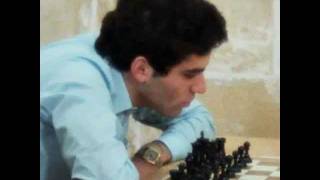Friday, 16 January, 2026г.
















Где искать: по сайтам Запорожской области, статьи, видео ролики
пример: покупка автомобиля в Запорожье
Garry Kasparov greatest game series - Part 19 - One of the strongest chess players of all time!
♚ Play turn style chess at http://bit.ly/chessworld
♚ Play Chess vs. Kingscrusher and others: https://www.chessworld.net/chessclubs/asplogin.asp?from=1053
♚ Subscribe to best Youtube Chess Video Channel : http://bit.ly/kingscrusher
? Garry Kasparov Playlist: http://bit.ly/2MItFxD
►FREE online turn-style chess at http://www.chessworld.net/chessclubs/asplogin.asp?from=1053
Who is Kasparov?
https://en.wikipedia.org/wiki/Garry_Kasparov
Garry Kimovich Kasparov (Russian: Га́рри Ки́мович Каспа́ров, Russian pronunciation: [ˈɡarʲɪ ˈkʲiməvʲɪtɕ kɐˈsparəf]; born Garik Kimovich Weinstein,[2] 13 April 1963) is a Russian chess grandmaster, former world chess champion, writer, and political activist, whom many consider to be the greatest chess player of all time.[3] From 1986 until his retirement in 2005, Kasparov was ranked world No. 1 for 225 out of 228 months. His peak rating of 2851,[4] achieved in 1999, was the highest recorded until being surpassed by Magnus Carlsen in 2013. Kasparov also holds records for consecutive professional tournament victories (15) and Chess Oscars (11).
Kasparov became the youngest ever undisputed World Chess Champion in 1985 at age 22 by defeating then-champion Anatoly Karpov.[5] He held the official FIDE world title until 1993, when a dispute with FIDE led him to set up a rival organization, the Professional Chess Association.[6] In 1997 he became the first world champion to lose a match to a computer under standard time controls, when he lost to the IBM supercomputer Deep Blue in a highly publicized match. He continued to hold the "Classical" World Chess Championship until his defeat by Vladimir Kramnik in 2000. In spite of losing the title, he continued winning tournaments and was the world's highest-rated player when he retired from professional chess in 2005.
After Kasparov retired, he devoted his time to politics and writing. He formed the United Civil Front movement, and joined as a member of The Other Russia, a coalition opposing the administration and policies of Vladimir Putin. In 2008, he announced an intention to run as a candidate in that year's Russian presidential race, but failure to find a sufficiently large rental space to assemble the number of supporters that is legally required to endorse such a candidacy led him to withdraw. Kasparov blamed "official obstruction" for the lack of available space.[7] Although he is widely regarded in the West as a symbol of opposition to Putin,[8] he was barred from the presidential ballot,[7] as the political climate in Russia makes it difficult for opposition candidates to organize.[9][10]
Kasparov is currently chairman for the Human Rights Foundation and chairs its International Council. In 2017, he founded the Renew Democracy Initiative (RDI), an American political organization promoting and defending liberal democracy in the U.S. and abroad. He also serves as chairman of the group.[11][12]
Is Kasparov the greatest ever ?
https://en.wikipedia.org/wiki/Comparison_of_top_chess_players_throughout_history
This article presents a number of methodologies that have been suggested for the task of comparing the greatest chess players in history. Statistical methods offer objectivity but, while there is agreement on systems to rate the strengths of current players, there is disagreement on whether such techniques can be applied to players from different generations who never competed against each other.
Statistical methods
Elo system
Main articles: Elo rating system and List of chess players by peak FIDE rating
Perhaps the best-known statistical model is that devised by Arpad Elo in 1960 and further elaborated on in his 1978 book The Rating of Chessplayers, Past and Present.[1] He gave ratings to players corresponding to their performance over the best five-year span of their career. According to this system the highest ratings achieved were:
2725: José Raúl Capablanca
2720: Mikhail Botvinnik, Emanuel Lasker
2700: Mikhail Tal
2690: Alexander Alekhine, Paul Morphy, Vasily Smyslov
(Though published in 1978, Elo's list did not include five-year averages for Bobby Fischer and Anatoly Karpov. It did list January 1978 ratings of 2780 for Fischer and 2725 for Karpov.)[2]
In 1970, FIDE adopted Elo's system for rating current players, so one way to compare players of different eras is to compare their Elo ratings. The best-ever Elo ratings are tabulated below.[3]
As of December 2015, there were 101 chess players in history who broke 2700 and thirteen of them exceeded 2800.[4][5][6][7][8] Particularly notable are the peak ratings of Fischer, Karpov and Kasparov, who achieved their peak ratings in earlier years (1972, 1994, and 1999 respectively).
♞ Challenge KC and others for turn style chess at http://bit.ly/33uVY8O
Теги:
chess Chess game kingscrusher online online chess strategy tactics insight commentary comments annotations explanations lesson lessons secret help How to win how to beat beginner Beginners novice grandmaster master chess is fun chess blitz the immortal game knight pawn rook queen king bishop tips tutorial opening openings middle game middlegame end game endgame how to win chessworld.net letsplaychess.com
Похожие видео
Мой аккаунт


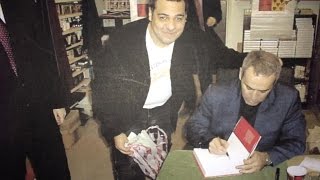 У вашего броузера проблема в совместимости с HTML5
У вашего броузера проблема в совместимости с HTML5